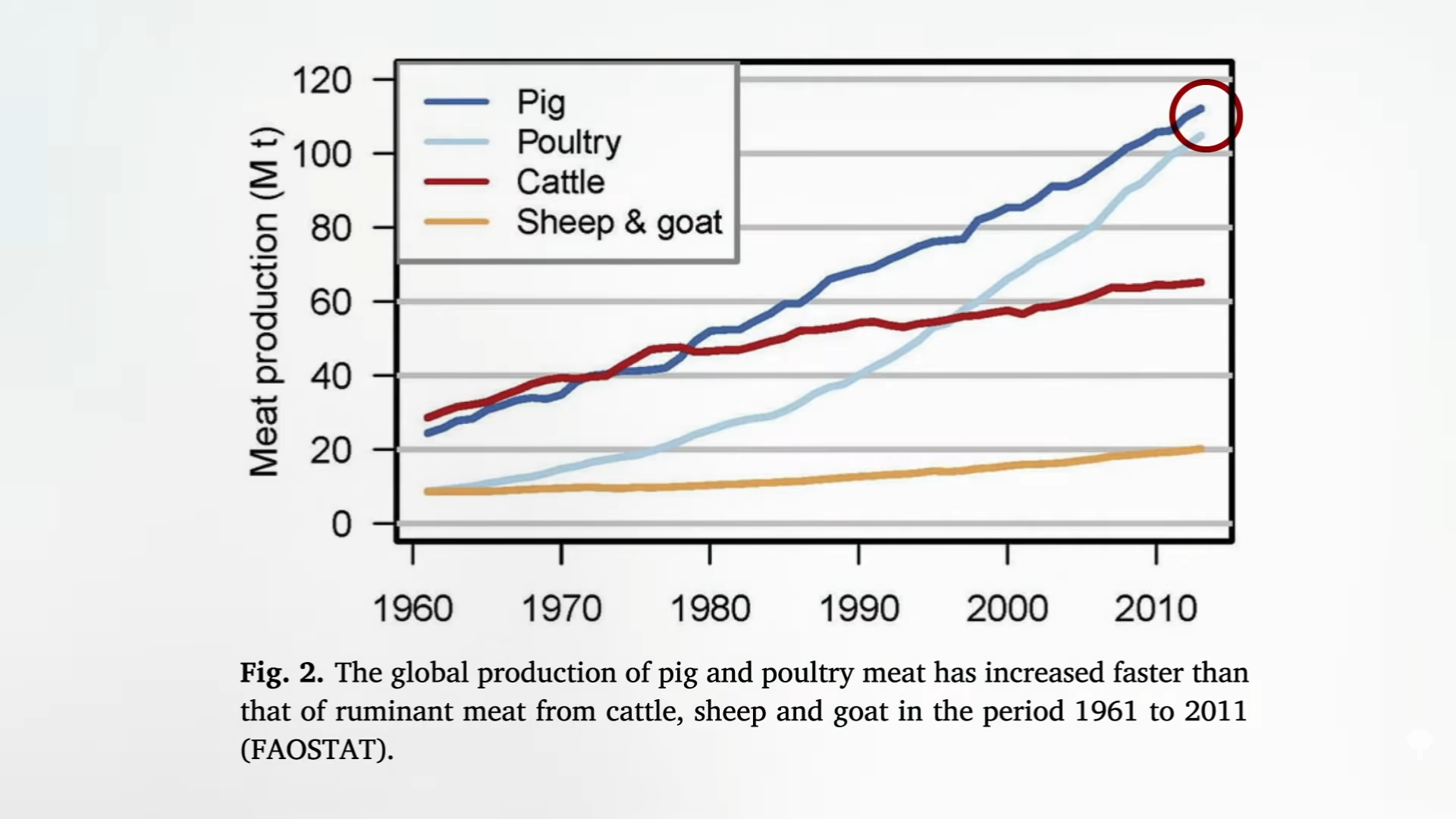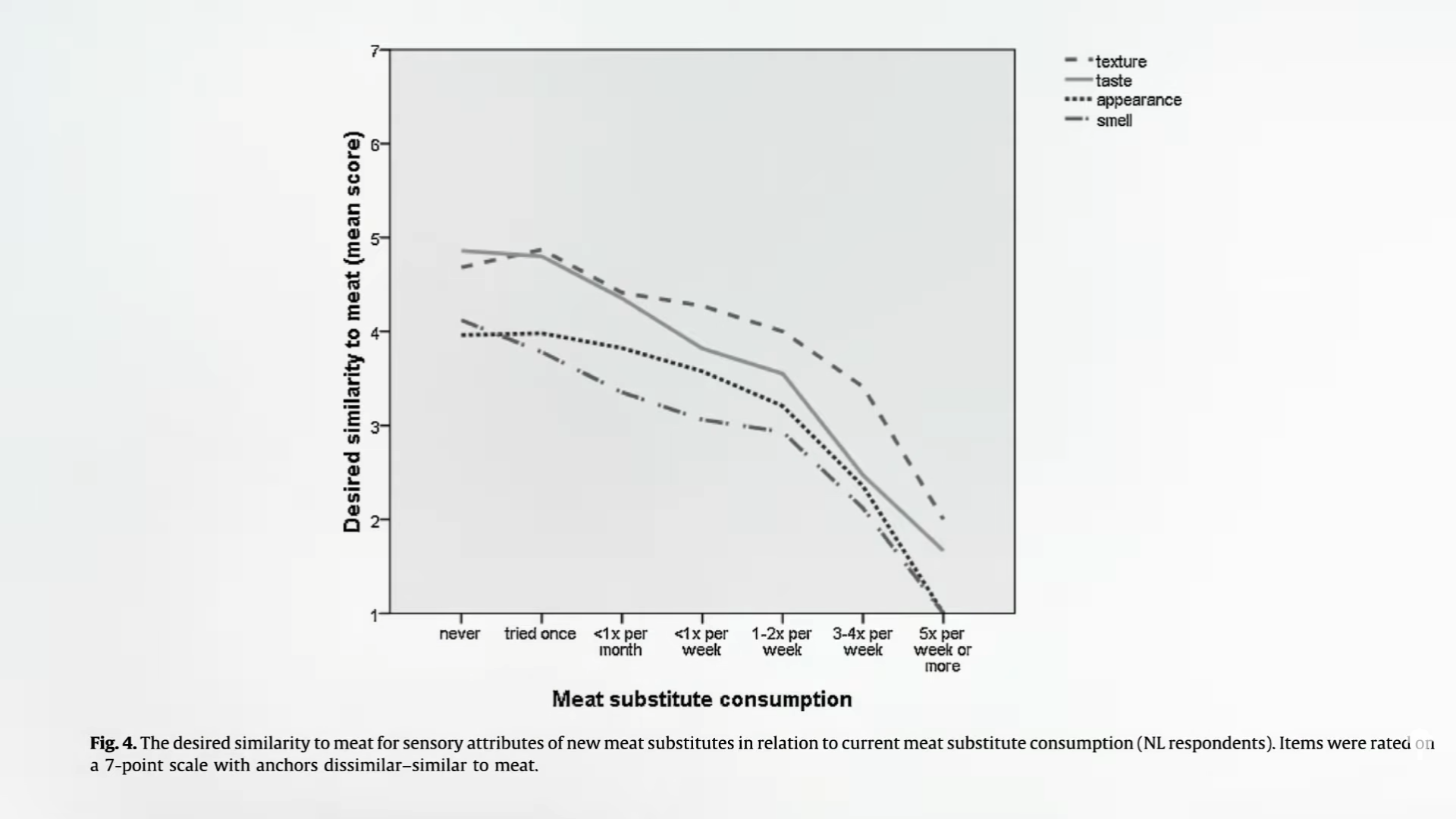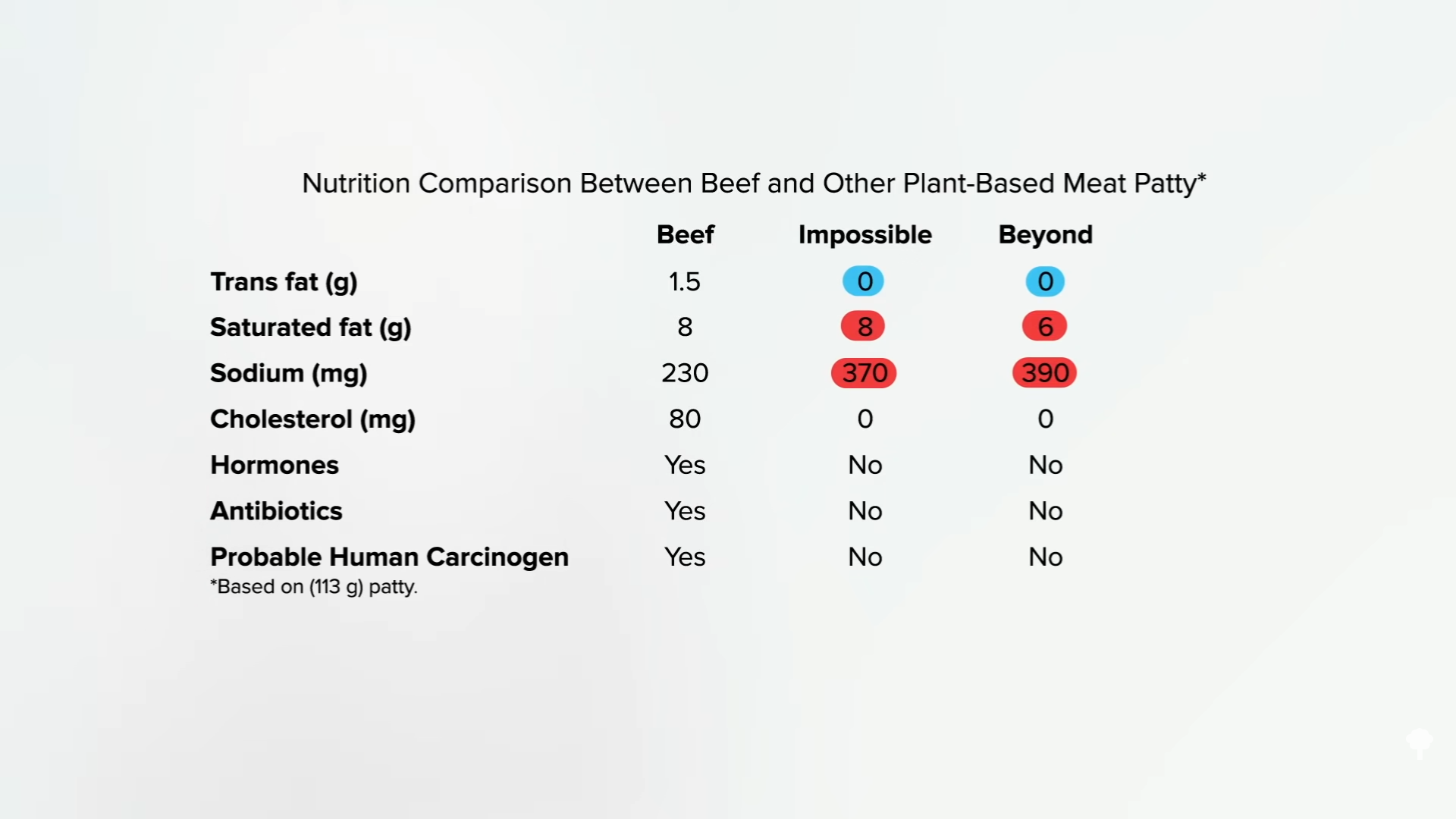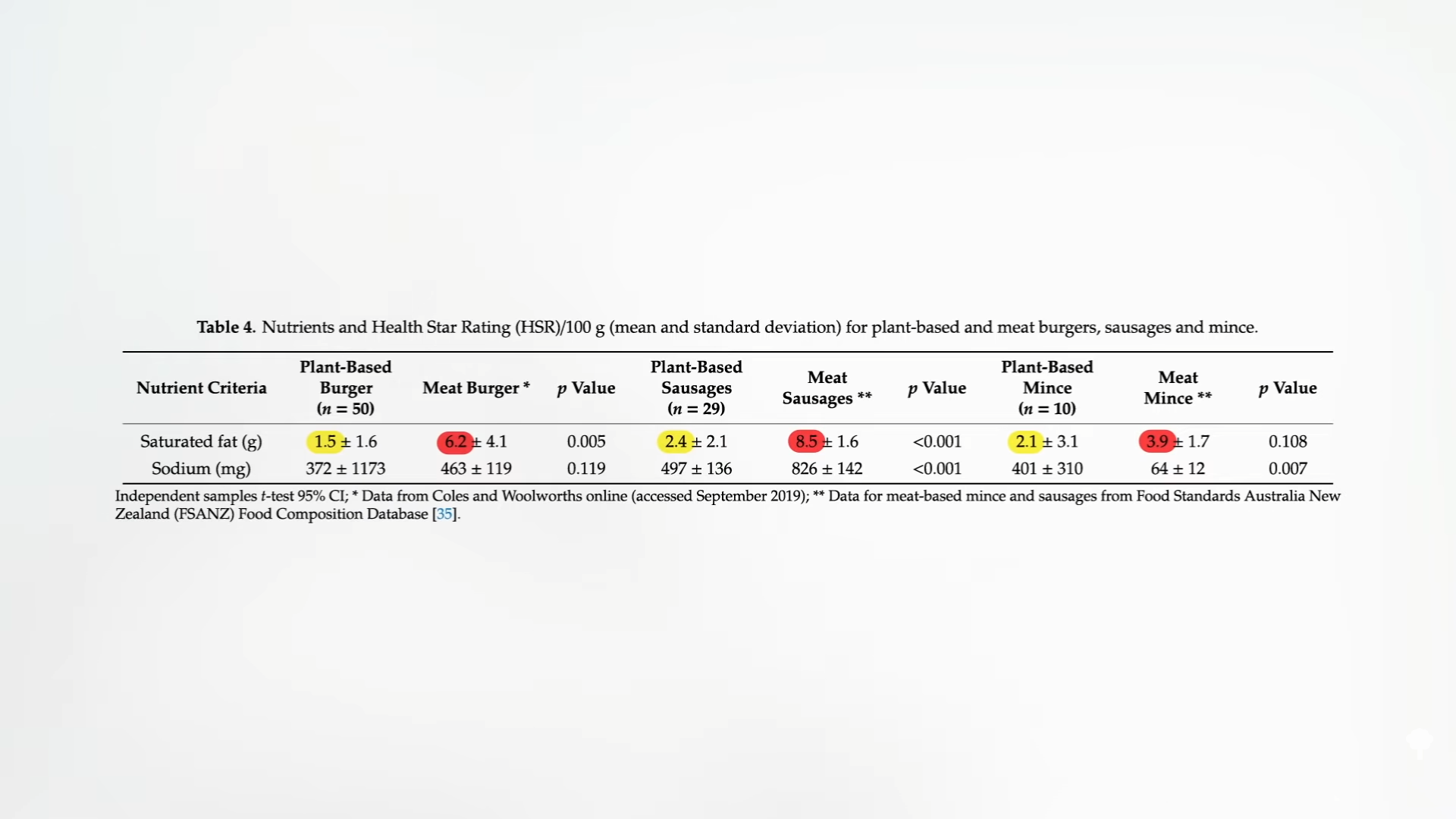What occurs whenever you examine the trans fat, saturated fats, sodium, and levels of cholesterol in plant-based meats versus animal-based burgers?
World meat manufacturing has skyrocketed over the past half-century. As you possibly can see beneath and at 0:20 in my video Are Beyond Meat and the Impossible Burger Healthy?, pork and poultry meat now exceed 100 megatons—that’s 100 million tons—a 12 months, and “our rising demand for meat and dairy meals merchandise is unsustainable.”

“Anti-consumption and/or discount of meat and animal by-products are arguably probably the most impactful methods during which shoppers can alter their diets to positively affect particular person and societal well-being.” Curiosity in plant-based diets and meat discount is unquestionably growing, however even one thing like Meatless Mondays “requires dietary change and neither sustainability nor well being approaches are more likely to work with those that have robust constructive beliefs about meat consuming.” Nonetheless, swapping in plant-based meat options “could assist disrupt the negativity round lowering meat.” For hardcore meat eaters, although, the substitutes must taste like meat and appear to be meat.
It’s attention-grabbing. The extra individuals consume meat substitutes, the much less possible they’re to care that they’ve comparable tastes, textures, appearances, or smells of meat, as you possibly can see right here and at 1:04 in my video.

However for plant-based options to appeal to those that want them, the meatier, the higher. This has actually been achieved with the spate of latest plant-based merchandise in the marketplace, and research after research after research agree that they’re more healthy for the planet. Are they more healthy for us, too?
As you possibly can see beneath and at 1:30 in my video, when the labels of beef, Unattainable, and Past burgers had been compared and 4 of the worst parts of the meals provide—trans fat, saturated fats, sodium, and ldl cholesterol—had been assessed, the plant-based burgers received fingers down when it got here to trans fats and ldl cholesterol. All of us know that trans fat are “a critical threat issue to heart problems, most cancers, and diabetes,” however they’ve additionally been associated with signs of despair, a lowering of testosterone in males (even at simply 1 % of energy), in addition to linked to “a higher threat of growing all-cause dementia and Alzheimer illness.” Certainly, greater ranges of trans fats in our blood are related to as much as a 50 % greater threat of growing dementia, together with Alzheimer’s.

Now that partially hydrogenated oils have been phased out of the meals provide in the USA, for instance, the one main supply of trans fat that is still will likely be animal merchandise.
What is the tolerable higher every day consumption degree for trans fats? An higher restrict was not set for trans fats by the Institute of Drugs (IOM) “as a result of any incremental enhance in trans fatty acid consumption will increase CHD threat,” and coronary coronary heart illness is the primary killer of women and men. That’s, any consumption of trans fats above zero “increases LDL ldl cholesterol.”
As a result of trans fatty acids are unavoidable in diets that include meat and dairy, consuming zero trans fats “would require important modifications in patterns of dietary consumption.” One of many authors of the Institute of Drugs’s report is from the Harvard Faculty of Public Well being’s vitamin division and offered a memorable clarification for why the IOM panel didn’t cap it at zero: “‘We are able to’t inform individuals to cease consuming all meat and all dairy merchandise,’ he mentioned. ‘Effectively, we may inform individuals to grow to be vegetarians,’ he added. ‘If we had been actually basing this solely on science we’d, however it’s a bit excessive.’” (We wouldn’t need scientists to base something on science…)
Anyway, plant-based meats being trans-fat-free is an enormous benefit, and, in fact, they’re freed from ldl cholesterol, hormones, and antibiotics, and haven’t been designated as “possible human carcinogens” by the World Well being Group, as you possibly can see right here and at 3:30 in my video.

Now, I’m not proud of the plant-based burgers’ added salt, which is a couple of quarter of the American Coronary heart Affiliation’s 1,500-mg every day higher sodium restrict, or their saturated fats (from added coconut oil), however these do appear to be outliers. Within the largest research of the dietary worth of plant-based meats up to now, saturated fats ranges of comparable merchandise solely average about 2 grams per serving, which is a lot better than the animal-based equivalents. Sodium stays an issue all through the sector, although, like practically every other processed meals on the market, as seen right here and at 4:03 in my video.

How processed are these merchandise? Let’s look on the fiber content material, for instance. Seeing any fiber in a burger is an efficient factor, but when we ate the identical quantity of protein from yellow peas, for instance, the first plant protein in Past Burger, there can be virtually no saturated fats or sodium in any respect, and we’d get a full 20 grams of fiber, as seen right here and at 4:25 in my video.

Processing crops in a processing plant can get rid of 90 % of the fiber, however processing crops by way of animals get rid of one hundred pc of the fiber.
Because the chair of Harvard’s vitamin division put it, “Vitamin insurance policies and dietary pointers ought to proceed to emphasise a weight-reduction plan wealthy in plant-based meals similar to nuts, seeds, and legumes or pulses, that are wealthy in protein and plenty of different vitamins however require little industrial processing.” However we shouldn’t let the proper be the enemy of the nice. Not everybody can go all kale and quinoa in a single day. The selection on a U.S. Burger King menu isn’t between a beef Whopper and soybeans (a major ingredient within the Unattainable patty), however between a beef Whopper and an Unattainable Whopper, and in that case, it’s a no brainer.
Should you missed the primary video on this sequence on plant-based meats, see The Environmental Impacts of Plant-Based Meat Substitutes.
Keep tuned and test extra movies within the associated posts beneath.
For a healthful, whole-food veggie burger, try my recipe for Black Bean Burgers from my first cookbook.











